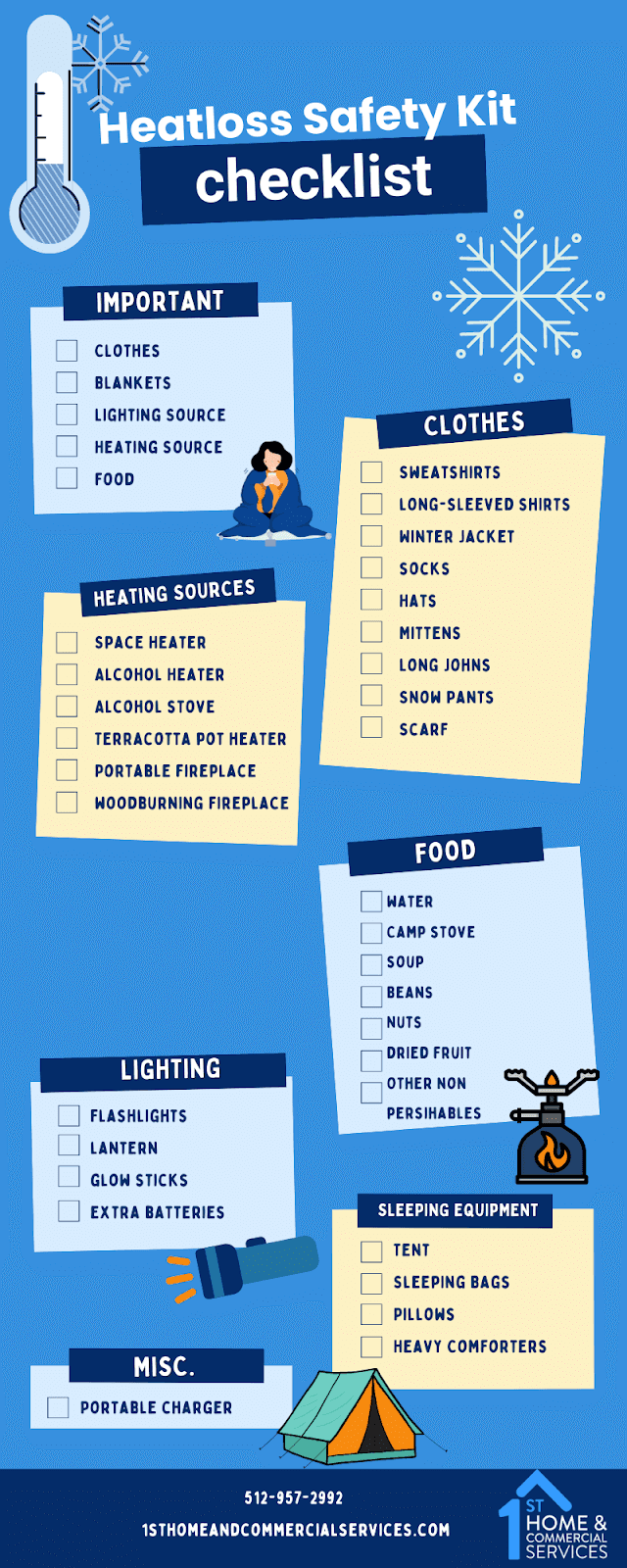.2202251455550.png)
Losing your heat in the middle of the winter can be sudden and unpleasant. Here are the ways you can ensure you’re prepared for whenever your heat may go out:
Do:
- Put on layers and bundle up to stay warm
- Leave your faucets lightly dripping to help prevent your pipes from bursting.
- Make some warm food to keep you full and warm from the inside out
- Contact a professional to help get your heat restored
Don’t:
- Leave your car running in your garage; this can lead to carbon monoxide poisoning and can be fatal.
- Open windows or doors, this will let the heat out and the cold in
- Take a hot shower; being wet in cold situations can lead to hypothermia
- Skip regular HVAC inspections; these can help prevent heat outages.

Safety Kit:
There are different categories of items one should have in their “Heat Loss Safety Kit.”
- Clothes - making sure you have plenty of layers to keep yourself warm is essential to staying warm without heat. We recommend having the following on hand:
- Sweatshirts
- long-sleeved shirts
- Winter jacket
- socks
- Hats
- Mittens
- Long Johns
- Snow pants
- Scarves
- Heating Sources - Not all of the following are needed, but having one or two working alternative heating sources can save you when the heat goes out.
- Indoor space heater
- Alcohol heater
- Alcohol stove
- Terracotta pot heater
- Portable fireplace
- Wood burning fireplace
- Food - Ensuring you are fully stocked on water and nonperishable foods is essential to keeping spirits and attitudes high when waiting for your heat to turn back on. Some recommended items are:
- Water - (in jugs or bottles)
- Camp stove - to cook your food
- Soup
- Beans
- Nuts
- Dried fruit
- Other nonperishables
- Lighting Source - If your electricity also goes out during a heat loss, it’s crucial to have an alternative light source
- Flashlights
- Lantern
- Glow sticks
- Extra batteries
- Sleeping equipment -
- Tent
- Sleeping bags
- Pillows
- Heavy comforters
- Miscellaneous -
- Portable charger - to make sure you’re able to keep your phone charged to be in contact with a professional to help restore heat and any other emergencies.


